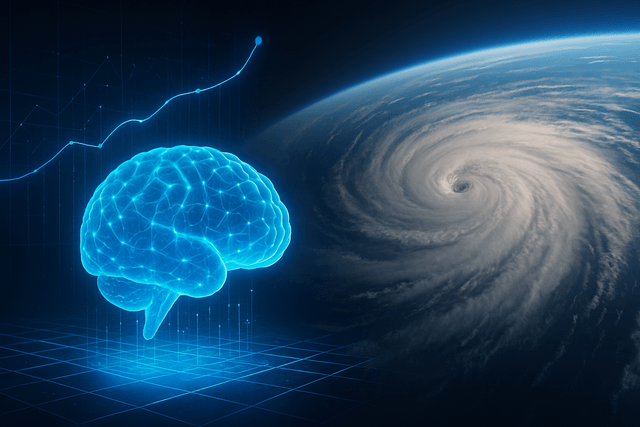Microsoft Research has developed Aurora, a groundbreaking AI foundation model that's revolutionizing how we predict and prepare for extreme weather events, particularly tropical cyclones.
Trained on more than one million hours of diverse geophysical data—likely the largest dataset ever assembled for an AI weather model—Aurora has demonstrated remarkable accuracy in forecasting tropical cyclone paths. The model can predict storm trajectories five days in advance with approximately 30% less error than previous systems, making it the first machine learning model to outperform the National Hurricane Center in five-day tropical cyclone track forecasting.
Aurora's effectiveness was dramatically demonstrated when it correctly predicted Typhoon Doksuri's landfall in the Philippines four days before the actual event in July 2023, while official forecasts incorrectly placed the storm off northern Taiwan's coast. For storms in the North Atlantic and East Pacific, Aurora's predictions were 20-25% more accurate at lead times of two to five days compared to traditional forecasting methods.
"As we all know from many cases of typhoons and hurricanes, having even a day's advance notice is enough to save a lot of lives," explains Megan Stanley, a senior researcher with Microsoft Research's Aurora team.
What sets Aurora apart is its foundation model approach, which allows it to be fine-tuned for specific tasks with relatively little additional data. This adaptability enables Aurora to excel at predicting not just weather patterns but also air quality, ocean waves, and other environmental phenomena. The model generates forecasts in seconds rather than the hours required by traditional systems running on supercomputers, representing a computational speed-up of approximately 5,000 times.
Microsoft has made Aurora's source code and model weights publicly available to advance atmospheric forecasting research. The technology is already being integrated into Microsoft's MSN Weather app and is being deployed for disaster relief planning in regions vulnerable to tropical cyclones.
As climate change increases the frequency and intensity of extreme weather events, Aurora represents a significant advancement in our ability to predict and mitigate their impacts, potentially saving countless lives through more accurate and timely warnings.

